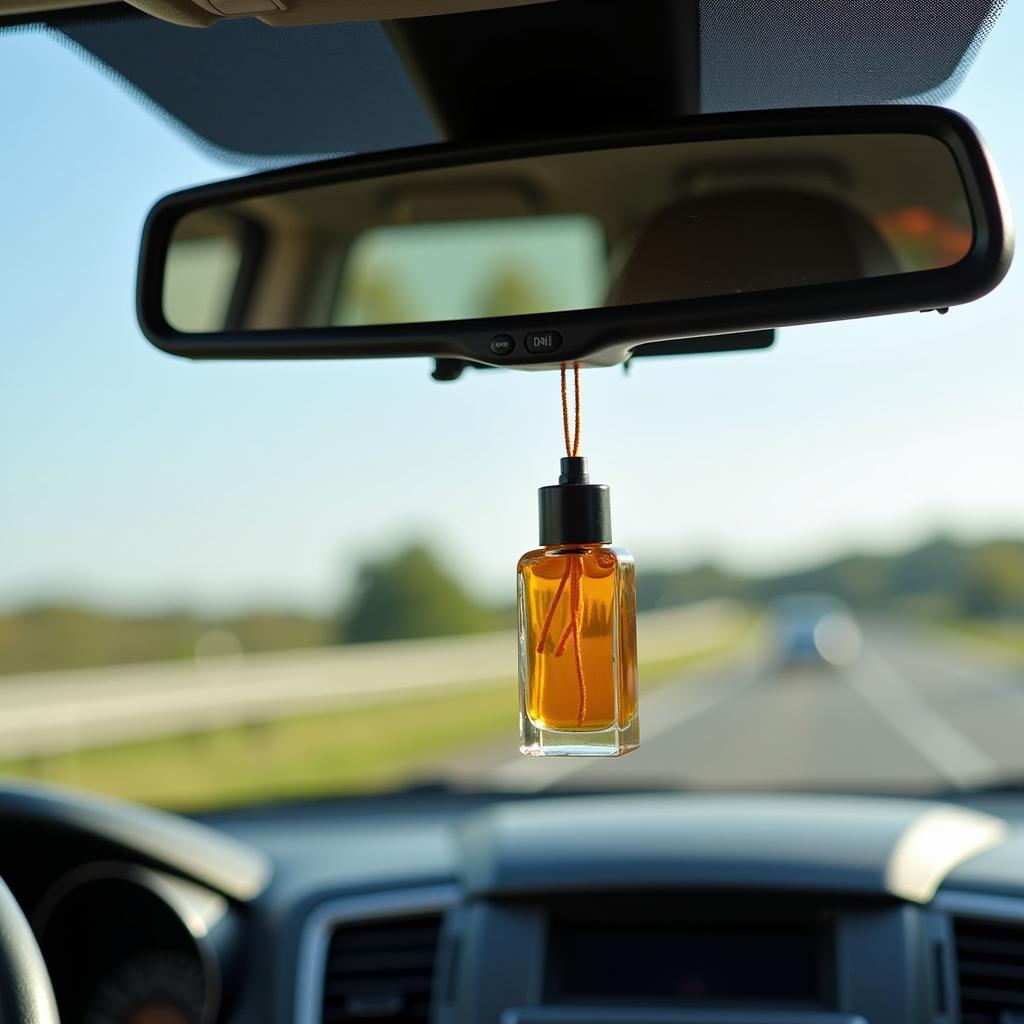There’s nothing quite like the fresh, clean smell of a new car. But over time, your car can develop some unwanted scents, ranging from mild to downright unpleasant. Whether it’s a lingering odor from spilled food, a musty smell from damp carpets, or a strange chemical scent, getting rid of car smells can be a challenge. Fortunately, there are several effective solutions to banish those unpleasant odors and restore your car to its former glory. This comprehensive guide will provide you with all the information you need to car sos fix those pesky smells and get your car smelling fresh again.
Identifying the Source of the Smell
The first step to fixing a car smell is identifying its source. This will help you determine the best approach to eliminate it. Here are some common sources of car odors:
- Food and Drinks: Spilled food, beverages, or leftover takeout can leave behind a lingering odor.
- Pets: Pet hair, dander, and accidents can contribute to unpleasant smells.
- Smoking: Cigarette smoke can be particularly difficult to remove, leaving behind a strong, lingering odor.
- Mold and Mildew: Moisture trapped in your car’s interior can lead to mold and mildew growth, causing a musty smell.
- Leaking Fluids: Coolant, oil, or brake fluid leaks can emit strong, chemical odors.
- Cleaning Products: Overuse of harsh cleaning products can leave behind a strong, unpleasant smell.
- Air Freshener Overuse: While air fresheners can mask odors temporarily, excessive use can actually create a more potent odor.
Cleaning and Deodorizing Your Car Interior
Once you’ve identified the source of the smell, you can start cleaning and deodorizing your car interior. Here’s a step-by-step guide:
1. Vacuum Thoroughly:
Start by thoroughly vacuuming your car’s interior, including the seats, carpets, floor mats, and under the seats. This will remove any loose debris or dirt that could be contributing to the smell.
2. Clean All Surfaces:
Use a mild soap and water solution to clean all surfaces, including the dashboard, door panels, console, and windows. You can use a soft cloth or a microfiber towel for cleaning.
3. Tackle Stubborn Stains:
For stubborn stains, you may need a stronger cleaning solution. There are numerous commercially available carpet and upholstery cleaners that can effectively remove stains and odors.
 Cleaning car interior
Cleaning car interior
4. Address Pet Odors:
If pet odors are the culprit, you can use a pet-specific odor eliminator or enzymatic cleaner. These products are designed to break down pet waste and neutralize odors.
5. Deodorize with Baking Soda:
Baking soda is a natural and effective odor absorber. Sprinkle a generous amount of baking soda on the carpets and floor mats, let it sit for several hours, and then vacuum it up.
6. Utilize Air Fresheners:
While air fresheners won’t eliminate the source of the odor, they can mask it temporarily. Choose a scent that you find pleasant and avoid using overly strong or artificial-smelling products.
7. Consider Professional Cleaning:
If the odor is particularly persistent or difficult to remove, consider taking your car to a professional detailing service. They have specialized equipment and cleaning products that can effectively eliminate even the toughest odors.
Dealing with Specific Smells
Here are some tips for addressing specific types of car smells:
How to Get Rid of Smoke Smell
Cigarette smoke is one of the most difficult odors to remove from a car. Here’s how to tackle it:
- Air Out the Car: Park your car in a well-ventilated area and keep the windows open for several hours to air it out.
- Ozone Generator: Consider using an ozone generator. Ozone is a powerful oxidizer that can break down odor molecules.
- Activated Carbon: Place activated carbon filters throughout your car to absorb odors.
 Car air freshener hanging on rearview mirror
Car air freshener hanging on rearview mirror
How to Get Rid of Mold Smell
Mold and mildew thrive in damp environments, so it’s essential to address any moisture sources in your car. Here’s how to deal with mold:
- Dry the Car: Use a dehumidifier or leave your car windows open to dry out the interior.
- Clean Affected Areas: Use a bleach solution to clean any affected areas, such as the carpets, seats, or dashboard.
- Replace Moldy Materials: If the mold infestation is severe, you may need to replace the affected materials.
How to Get Rid of Chemical Smell
Chemical smells can be caused by leaks, spills, or the use of harsh cleaning products. Here’s how to address chemical smells:
- Identify the Source: If possible, identify the source of the chemical odor. This will help you determine the best cleaning solution.
- Ventilate: Park your car in a well-ventilated area to allow the chemical fumes to dissipate.
- Use a Neutralizer: Apply a commercial odor neutralizer to absorb and eliminate the chemical smell.
Preventing Car Odors
Once you’ve successfully tackled the car smell, you can take steps to prevent it from returning. Here are some tips:
- Regular Cleaning: Keep your car clean by vacuuming regularly and wiping down surfaces.
- Air Out the Car: Leave your car windows open for a short period after each use to allow fresh air to circulate.
- Prevent Food and Drink Spills: Avoid eating and drinking in your car to minimize the risk of spills.
- Address Leaks Promptly: Repair any leaking fluids as soon as possible to prevent odors from developing.
- Use Gentle Cleaning Products: Avoid using harsh chemicals that can leave behind strong odors.
Expert Advice:
- “Identifying the source of the odor is the key to effectively eliminating it. If you’re not sure what’s causing the smell, don’t hesitate to seek professional help from a mechanic or detailing service. ” – Daniel Garcia, Automotive Technician
- “Use baking soda liberally. It’s an affordable and effective way to absorb odors and leave your car smelling fresh. ” – Maria Hernandez, Car Detailer
FAQ
Q: What if the smell is coming from the air conditioning system?
A: A musty or unpleasant smell coming from your car’s air conditioning system is usually caused by mold or bacteria growth in the evaporator. To address this, you may need to have your AC system cleaned professionally.
Q: What if the smell is coming from the engine?
A: A strong, chemical odor coming from your car’s engine could indicate a leak or a malfunctioning component. It’s important to have your car inspected by a mechanic to diagnose the problem.
Q: What if the smell is coming from the gas tank?
A: A fuel odor coming from your gas tank could indicate a leak or a problem with the fuel lines. Have your car inspected by a mechanic to address this issue.
Q: Can I use a car air freshener to cover up a bad smell?
A: While air fresheners can mask odors temporarily, they won’t eliminate the source of the smell. It’s best to address the underlying cause of the odor to prevent it from returning.
Q: How often should I clean my car interior?
A: It’s a good idea to vacuum your car interior and wipe down surfaces at least once a month. Regular cleaning will help prevent odors from developing and keep your car smelling fresh.
Remember, a clean and fresh-smelling car is a pleasant experience for both you and your passengers. By following the tips and advice in this guide, you can effectively fix car smell and enjoy a comfortable and enjoyable driving experience.
If you have any questions or need further assistance, you can contact us at Autotippro and we’ll be happy to help you get your car smelling fresh again.







Leave a Reply